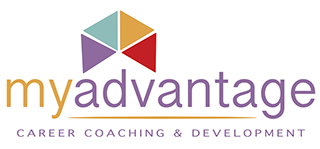Why Feedback Matters
Interviewing can be a nerve-wracking experience, but regardless of the outcome, it provides a valuable learning opportunity. Constructive feedback helps candidates identify strengths and areas for improvement, making future interviews more successful. Understanding what went well and what didn’t can sharpen interview skills, improve responses, and boost confidence.
Why Companies Hesitate to Give Feedback
Despite the obvious benefits, many companies are reluctant to provide detailed feedback. Some common reasons include:
- Legal concerns: Employers worry that specific feedback might be misinterpreted and lead to discrimination claims.
- Time constraints: With hundreds of applications for a single position, hiring managers may not have time to provide personalized responses.
- Lack of clarity: Sometimes, the decision comes down to small, subjective factors that are difficult to articulate.
The Best Way to Request Feedback
Even with these challenges, it is possible to receive meaningful feedback—if you ask the right way. Here’s how:
1. Timing Matters
The best time to ask for feedback is within a few days of receiving a rejection. If too much time passes, hiring managers may not recall specifics about your interview.
2. Who to Ask
If possible, direct your request to the hiring manager rather than HR, as they will have more insight into your interview performance. However, if all communication has been through HR, it’s best to continue that channel.
3. How to Ask
A polite, professional request increases the chances of receiving a response. Here’s a simple yet effective email template:
Subject: Thank You & Request for Feedback
Dear [Hiring Manager’s Name],
I sincerely appreciate the opportunity to interview for the [Job Title] position at [Company Name]. While I’m disappointed that I wasn’t selected, I truly enjoyed learning more about the team and the role.
If you have a moment, I would greatly appreciate any feedback you could share regarding my interview. I’m always looking to improve, and any insights you can provide would be invaluable for my professional growth.
Thank you again for your time and consideration, and I hope our paths cross again in the future.
What to Do If You Don’t Get a Response
Not all companies will respond, and that’s okay. If you don’t hear back:
- Reflect on the interview: Take notes on what went well and what could have been improved.
- Seek external feedback: Consider doing mock interviews with a mentor or career coach.
- Continue applying: Every interview is a stepping stone, even if you don’t receive direct feedback.
How to Use Feedback to Improve
If you do receive feedback, take it constructively and avoid taking criticism personally. Look for patterns in the responses you get over multiple interviews. Are technical skills a recurring issue? Do you need to work on behavioral interview responses? Use the insights to refine your approach and practice targeted improvements.
Final Thoughts
Requesting interview feedback is a smart strategy for professional growth. While not every employer will respond, those who do can offer valuable insights that set you up for future success. The key is to ask professionally, reflect on the experience, and continuously work on improving your skills.
Remember, every interview—whether successful or not—is a learning experience that brings you one step closer to your ideal job.
